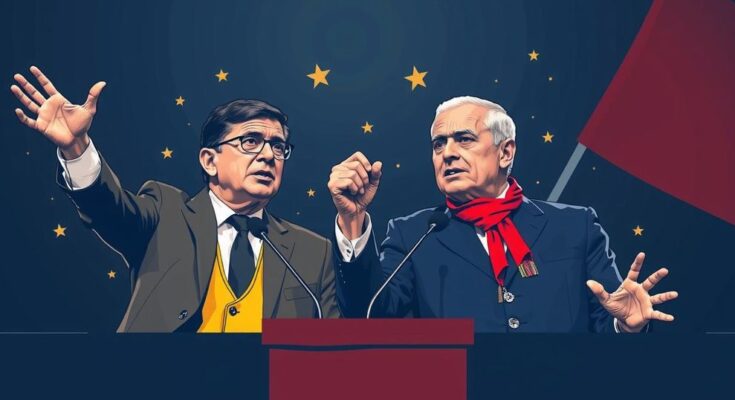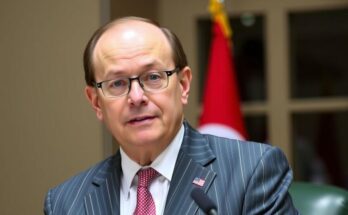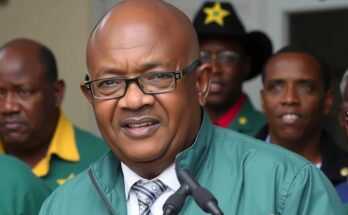Romanians voted in the first round of a presidential election with 13 candidates, where far-right nationalist George Simion and incumbent leftist Prime Minister Marcel Ciolacu are anticipated to advance to a runoff. The election reflects significant public sentiment amidst economic challenges and desires for change, with a parliamentary election following closely on December 1.
On Sunday, Romanians participated in the first round of their presidential election, which may lead to a runoff between far-right nationalist George Simion and incumbent leftist Prime Minister Marcel Ciolacu. With thirteen candidates in the running, the elections drew approximately 45% voter turnout by the evening. The electoral process continues with a parliamentary election scheduled for December 1.
Simion, who leads the far-right Alliance for the Unity of Romanians, has previously faced controversy and restrictions in Moldova and Ukraine due to his political stance and his support for the U.S. President-elect Donald Trump. He has expressed his desire for Romanians to take pride in their culture and interests. Ecaterina Nawadia, a young first-time voter, emphasized the importance of youth participation, expressing concern over the quality of leadership since the 1989 revolution.
Political consultant Cristian Andrei remarked on the potential impact of the diaspora, predicting a close race. He noted the risk of Romania drifting towards populism amid widespread voter dissatisfaction fueled by high inflation and economic challenges. Marcel Ciolacu, focusing on retaining citizens and attracting the diaspora back to Romania, emphasized the need for balance and responsibility in governance.
Other notable candidates include Elena Lasconi from the Save Romania Union and Mircea Geoană, the former NATO deputy secretary general. Lasconi highlights corruption as a primary issue, advocating for increased defense spending. In contrast, Simion has critiqued Romania’s military aid to Ukraine and has voiced hope for U.S. intervention to cease the conflict. In the 2020 elections, the AUR party rose to prominence, with Simion denying accusations of extremism against his party.
The article discusses the ongoing presidential election in Romania amid a politically charged atmosphere marked by the participation of a far-right nationalist and a leftist incumbent. With the elections serving as a critical litmus test of public sentiment, they highlight shifts toward populism typically seen in many European nations. This election occurs against the backdrop of economic challenges, including a high budget deficit and inflation, creating a volatile environment where voter preferences may sway significantly between the extremes of the political spectrum.
In conclusion, the Romanian presidential election serves as a pivotal moment for the nation as voters face choices between traditional leftist leadership and emerging nationalist sentiments. The significant voter turnout indicates an engaged electorate, particularly among the youth. With economic uncertainties at play, the potential candidates signify diverging visions for Romania’s future, raising critical questions about governance, nationalism, and Romania’s role on the European stage.
Original Source: www.theguardian.com




